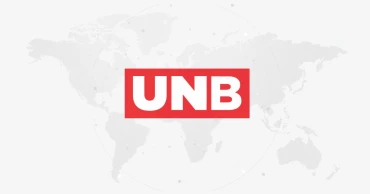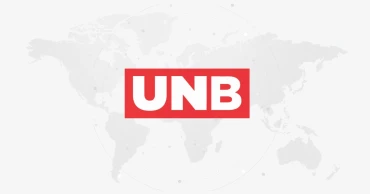scams
Inqilab Moncho issues heads up on scams using their name and good impression
Seek assistance from your local administration to prevent any form of extortion or fraudulent activities carried out in the name of Inqilab Moncho, the platform said Monday night.
In a statement shared on its Facebook page and signed by Inqilab Moncho’s Member Secretary Abdullah Al Jaber, the platform clarified that it does not have any committees or delegations at the division, district, upazila, or union levels.
However, there are several committees of Inqilab Moncho at the university level. Universities and colleges where Inqilab Moncho currently has committees include: Dhaka University, Jagannath University, Chittagong University, Begum Rokeya University, Barishal University, Pabna University of Science and Technology, Sylhet Shahjalal University of Science and Technology, Cumilla University and Dhaka College.
The platform has also been demanding justice for its slain spokesperson Sharif Osman Bin Hadi, who was shot by assailants on a motorcycle around 2:30pm on December 12 in the Box Culvert Road area of Paltan, sustaining bullet wounds to the head and below his right ear.
Earlier on Monday, a Dhaka court fixed January 15 for a hearing on the acceptance of charges submitted in the murder case of Osman Hadi.
1 month ago
How to Avoid Scams During Travel Bookings
There is a saying that if it sounds too good to be true, then it probably is. As electronic and social media have made advertisements easier than ever, there is a growing number of scams, especially leveraging the tourism industry. Here’s what one should keep in mind to avoid scams while booking for travel at home or abroad.
Ways to Avoid Scams while Doing Travel Bookings
Check for Website Authenticity
Website authenticity is the first and foremost way to avoid travel booking scams.
What’s the typical process people follow for booking? They go to Google and type in their keywords like ‘7 days vacation package to (desired destination)’.
Read more: Solo Trip: Tips for Travelling Alone for the First Time
Many fake websites leverage these keywords and advertise on search engines. As a result, they tend to show up at the top of the search results. Fortunately, one can easily check where there is an “AD” mark next to the website link.
There are several ways to check an authentic site. An efficient approach would be to check for the Domain Authority (DA) using free online tools. It is better to avoid sites with lower DA scores.
Avoid Too Good to Be True Offers
Data harvesting and tracking is another way scammers target tourists and travelers. The moment you put in a keyword in a search bar regarding a booking, you will notice enticing offers showing up regarding that destination. Most of these ads often sound too good to be true. And in almost all the cases, they are.
Read more: 10 Most Affordable Destinations in Indonesia: Winter retreats on a budget
As a precautionary measure, always double-check the offer on the website. Check for website authority to ensure that the displayed offers are indeed legit.
Double Check on the Payment
There are two warning signs of scams when it comes to payment – lack of encryption and guiding users to a different landing page. A legit travel booking site will have the necessary SSL encryption which shows up as a keypad lock right after the https in the address bar. Scam websites don’t have those.
Some scammers have legit-looking websites for information and pricing but would take the users to a different domain for payment. Users should be wary of those sites as well.
Read more: 10 Overseas Places Bangladeshis Can Visit Under BDT 10,000
2 years ago
Understanding VPN: The Comprehensive Guide
From online frauds, and scams to even hacking sensitive personal information, the Internet these days seems to be a haven for fraudsters. There’s a growing concern about internet security and how it might jeopardize the security of information and finance of people and organizations. VPN or Virtual Private Network can be a solution to such problems. Millions of people around the world are adopting VPNs for their data security and safe online browsing. So here’s a beginner's guide on VPN. Let’s find out how a VPN works, the benefits, and the types of VPNs.
What is a VPN?
VPN stands for Virtual Private Network. Generally, the internet is provided through an ISP which processes all of their user’s traffic simultaneously. This makes them susceptible to malicious attacks which might intercept the net traffic to access personal data.
A VPN works as an intermediary between the computer and the destination to make it untraceable. There are a few complicated steps involved in the process. Let’s have a look.
Read more: How to Protect Your YouTube Channel from Getting Hacked
How Does VPN Work?
VPN creates a secure channel between the computer and the intended destination by developing a private network just for the user. The data gets encrypted and sent directly to the VPN server. There it gets decoded and sent to the intended location. This middle encryption allows the data to be completely untraceable by anyone.
Every device has a unique IP address that can be used to trace all of its activity. VPN essentially masks the IP address and assigns a new IP address from their server. As a result, the data becomes completely untraceable even by the ISP. VPN works not only to maintain anonymity online and protect privacy but also to allow users to access region-specific content.
Benefits of Using a VPN
There are a lot of benefits to using VPN. Here are a mentionable few.
Enhanced Privacy
VPN brings enhanced privacy thanks to the end-to-end encryption between you and the VPN server, making it impossible to be tracked by a third party.
Read More: Bank Account Hacking Protection: How to save financial accounts from hackers?
Secured Data Transmission
The end-to-end computer-to-server extension also allows for secured data transmission. This is especially helpful if a user is in a public network zone like using free wifi. It's impossible to tell who else is signed into the network and what kind of monitoring they might be running. Secured encryption allows for safe data transmission.
Bypassing Geographical Restrictions
VPN helps to bypass geographical restrictions so that a user can access services that might not be available in their location or to evade censorship. For example, Netflix has a host of shows that are available in the UK but not in India. With VPN, a user from India can reroute their IP through the UK and access all the contents regardless of the restrictions.
2 years ago
BB disburses Tk 4000 crore as liquidity support to 5 Islami banks
Bangladesh Bank on Wednesday disbursed Tk 4000 crore as liquidity support to five Islami banks to meet ongoing liquidity crisis, sources in the central bank said.
Five Islami banks had earlier applied to the Bangladesh Bank, seeking liquidity support. They are Islami Bank Bangladesh Limited, Union Bank, Social Islami Bank, First Security Islami Bank and Global Islami Bank. The five banks belong to S. Alam group.
Central bank’s spokesperson Mezbaul Haque told UNB that it was decided to pay Tk 4,000 crore against Sukuk bond facility.
Read more: Bangladesh Bank curtails banks’ power to waive interest on loans
Islami banks can take more money, if required, under Sukuk bond facility, he said.
While BB Governor and Managing Directors of five Islami banks have denied the liquidity crisis in their respective banks, the liquidity shortage is still hampering the daily transaction, sources said.
On Monday, the Islami Bank Bangladesh Ltd’s deposits fell to Tk1,46,964 crore. On October 31, the deposit of the bank was Tk1,53,272 crore.
Earlier, IBBL had been lending money to all Islami banks for so long. But, IBBL is now going to other banks for money, a deputy managing director of the bank told UNB.
After the recent loan scam over Tk34,000 crore, a group of people withdrew their deposits from the bank, which is also another reason for the liquidity crisis, he said preferring anonymity.
Read more: Default bank loans surge to record Tk 1.25 lakh crore in Bangladesh: BB
In this context, five Islami banks have suddenly faced a liquidity crisis and are struggling to meet demand for regular transactions. Officials say the central bank has taken the special initiative to lend money to these banks to keep them afloat.
Bangladesh Bank has launched an investigation to look into the scam. The High Court separately has asked for clarification from S Alam group over the scam.
3 years ago







